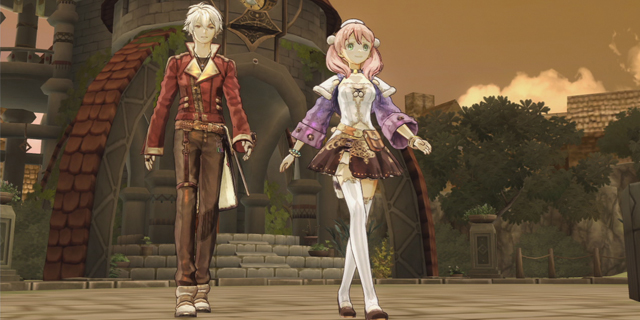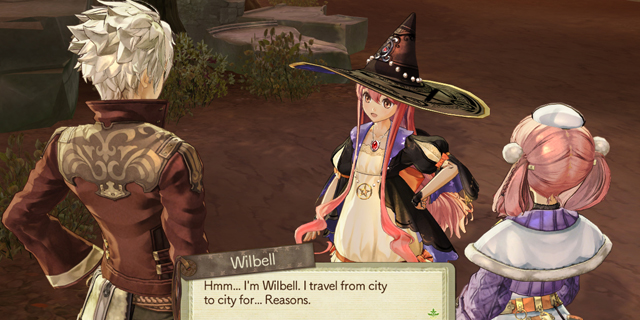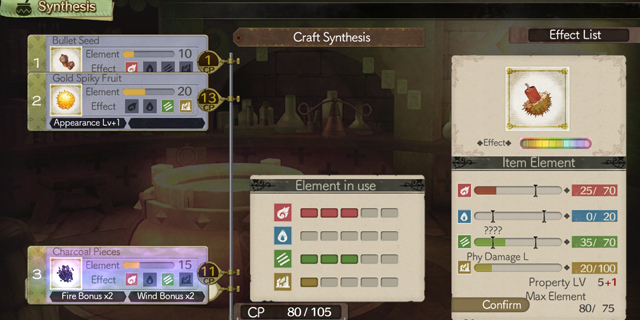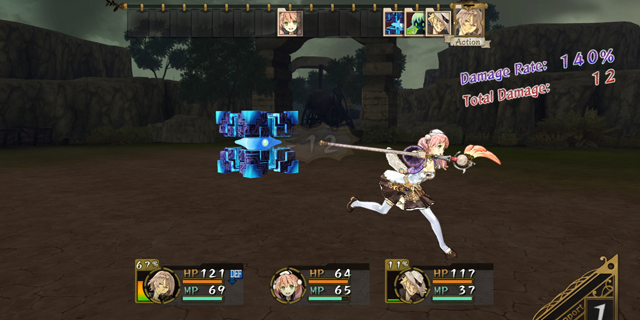
The Atelier series has always been a little different from your traditional Japanese RPG. Keeping away from the typical world-ending plot, the series’ games often focus on one town or group of characters. Escha & Logy continues this trend, but adds a new wrinkle with a second protagonist.
Escha and Logy begin their story as alchemists working for the government of the small town of Colseit. Escha is the only person living in the town who can use alchemy, while Logy is an experienced alchemist from a larger city. Both are assigned to work together, performing assignments for the people of Colseit. Among the characters the two meet is Nio, a character from Atelier Ayesha, who ties the two games together. Recurring characters are a staple of the PS3 Atelier games; the loosely organized connections are interesting ways of continuing storylines, though they are not so closely connected that the previous game is required.

A departure from the usual formula, Escha & Logy (pronounced ‘es-ka’ and ‘log-ee’) follows two alchemists, instead of the usual one. The two protagonists work as a team, though you are given a choice of perspectives at the beginning. The story remains the same, though the alchemist you choose alters some story elements and, most notably, the game’s ending. Escha is more of a traditional Atelier protagonist, while Logy is designed to be closer to a standard RPG character with a more serious tone.
Starting out, the game suffers from a lot of the tutorial woes that most RPGs are saddled with these days. The first couple hours drag a bit, especially if you’ve played an Atelier game before. The first major assignment largely explains the series formula of fighting, gathering and synthesizing. It’s not until after these tutorials that the new mechanics make themselves apparent.
Escha & Logy‘s plot is split into nine parts, spanning three years. Each year is split into three trimesters, each with an assignment to complete. Starting with the major (usually plot-related) assignment, once it is complete you can work on minor assignments to increase your rank. I didn’t have much difficulty in accomplishing the major assignments, though I think achieving 100% for the minor tasks does involve a bit of planning.

The game offers a few options for completing the necessary assignments. Simple items can be replicated or gathered by a Homunculus, allowing you to essentially craft two things at once. The items that can be replicated in this way are limited to more simple items that you already own. You’ll still have to build the majority of your items yourself, but this saves having to spend precious days crafting simple things.
Combat and gathering make up the remainder of the game, as you might expect. While I do prefer the battles in this game to those in Atelier Ayesha, it’s not really going to compare with a straight combat-focused RPG. Exploring and gathering makes for a fun break from managing your crafting time, and remains somewhat lighthearted as is typical for the series. Escha & Logy uses a six-member combat party, and focuses on managing support abilites to perform blocks or counterattacks.

Escha & Logy offers more diverse options with its two protagonists, though even with the more serious tone of Logy’s tale, those who have been put off by Atelier‘s style won’t really change their minds. That said, I consider it one of the better iterations on PS3, and without question the best choice for someone trying to get into the series.
Pros: Lots of side content, great visual style, time limits aren’t tight enough to be stressful
Cons: A few localization errors, somewhat-simple combat



















